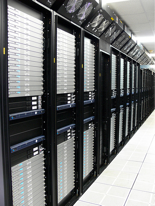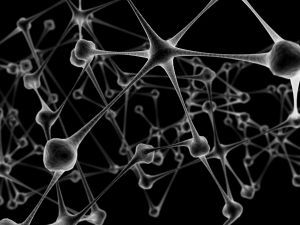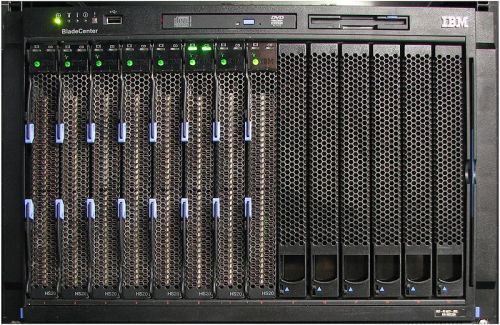While many people stereotype geeks as only being interested in using the computer all day, the truth is that a geek is actually a person who often contemplates many of the deeper questions of the universe while busy installing the coolest new add-ons to Firefox or tweaking their mobile phone so that they can control it from their desktop. One of the universal debates many geeks have centers around an important question that involves neurobiology and the science of artificial intelligence, and that question is - Does a human think faster than a computer?
What a question. Just think of the necessary evidence that one would need to produce in order to prove, or disprove, that statement. In fact, what is the question about really? Is it whether a human brain or a computer is faster, or is it which form of information processing is better? Is it even a fair comparison? Today, I'd like to engage MakeUseOf readers into a debate on this subject by first providing my own take - and then asking for yours.
The Question: Does a Human Think Faster Than a Computer?
The question itself represents the fallacy of how people think about computers. When a person uses a computer, if it's slow then it's junk. But there are certainly other factors to consider when examining intelligence - what about image recognition, language recognition, multi-tasking capabilities or self-learning and self-healing features?
First, to partially answer the "speed" question we need to examine data transmission. In the Hartford Examiner, writer Joy Casad answers the question, "How fast is a thought" by describing the chemical/biological propagation of "thinking" neurons before getting to the point in the final paragraph - these neurons transmit signals at 0.5 milliseconds. That's pretty fast!
In 2006, the fastest reported fiber optic transmission rate was 2.56 terabits a second. Okay, but a bit is nothing more than a zero and a one. Well - the current state of the art is the cutting edge subatomic technology created by Stanford researchers representing one bit with 35 electrons, or 35,000,000,000 electrons a millisecond. Due to the fact that axon/neuron electrical transmission depends on the chemical and biological environment it is in, data transmission of one neuron is actually millions of times slower than the fastest electrical transmission rates over copper electrical wire, and even slower compared to fiber optics. Score one for computers.
What About Processing Power?
The question of processing is a tricky one. According to the Top500 list of super computers, the fastest one as of 2009 is the RoadRunner BladeCenter at 12.8 GFlops (floating point operations per second).
A GFlop represents a billion operations per second. Now, you're thinking of that Monday morning in class when your professor asked you to perform a simple calculation and your mind went blank. You're ready to chalk up another point to computers, right? Wrong.
While the transmission of electrical impulses may be slower in the brain than over wire, the processing power of the brain is represented by not one, but thousands of processors backed into one major super computer. One example is the retina, which is sort of like your computer web cam, in that it transmits light (images) to the brain for processing. Except the retina itself has its own processing power, sort of like a subprocessor - 100 million neurons packed into a one centimeter by one millimeter space.
This stunning little processor is capable of processing ten images, each of about a million light points, every single second. Not only that, the data isn't transmitted over a single fiber of nerve cells, but over a cable to the brain made up of a million of these fibers, all transmitting bits of data at the same time in parallel. If you multiply the processing power of this volume of neurons by the overall size of the average 1,500 cubic cm human brain, the overall processing power of the brain is about 100 million, million operations per second. For those of you who are trying to do the math with your super computer brain - that's over 100,000 times more processing power than today's cutting-edge super computer.
Image and Language Recognition, Learning and Common Sense
If our brains are such super computers, then why do we feel so dense and so slow sometimes? I don't know about you, but I'm horrible at doing calculations in my head. The problem is that people think of computers only in terms of how many calculations it can do per second. The truth is, when it comes to intelligence there's so much more to process than calculations alone. How do you calculate what the tone of someone's voice implies they are really saying? How do you calculate the irony of a joke that, when taken literally, makes no sense at all? This is where the true power of the human brain makes itself known.
Have you ever had a friend who was such a genius that they could perform the most astounding calculations in their head, or they could fathom the most complex equations or problems imaginable - yet when faced with the simplest common-sense joke, they just didn't get it? This is the major difference between a human brain and a computer.
Author Gary Marcus writes, in his book on the human mind that, "The fundamental difference between computers and the human mind is in the basic organization of memory."
What he means is that a computer organizes information in a logical way. To retrieve data, the computer uses logical storage locations. A human brain, on the other hand, remembers where information is stored based on cues. Those cues are other pieces of information or memories connected to the information you need to retrieve. This means that the human mind can connect an almost unlimited number of concepts in a variety of ways, and then sometimes disconnect or recreate connections based on new information. This allows the human to step outside the boundaries of what has already been learned - leading to new art and new inventions that are the trademark of the human race.
There are a lot of other ways the human mind blows computers away - it can self repair itself, it can produce chemical reactions within its host body to induce instinctive reactions and protect itself from danger, it can handle every last function required to operate the machine of the human body while simultaneously processing information from outside that body, and most importantly it can continue learning and building new connections within that contextual storage array in ways that seem infinite.
In short, the answer to the question "Does a human think faster than a computer?" is yes. And it can also do a whole lot more than that.
Geeks out there - weigh in with your opinion in the comments section below!
Image Credits: cbowns





